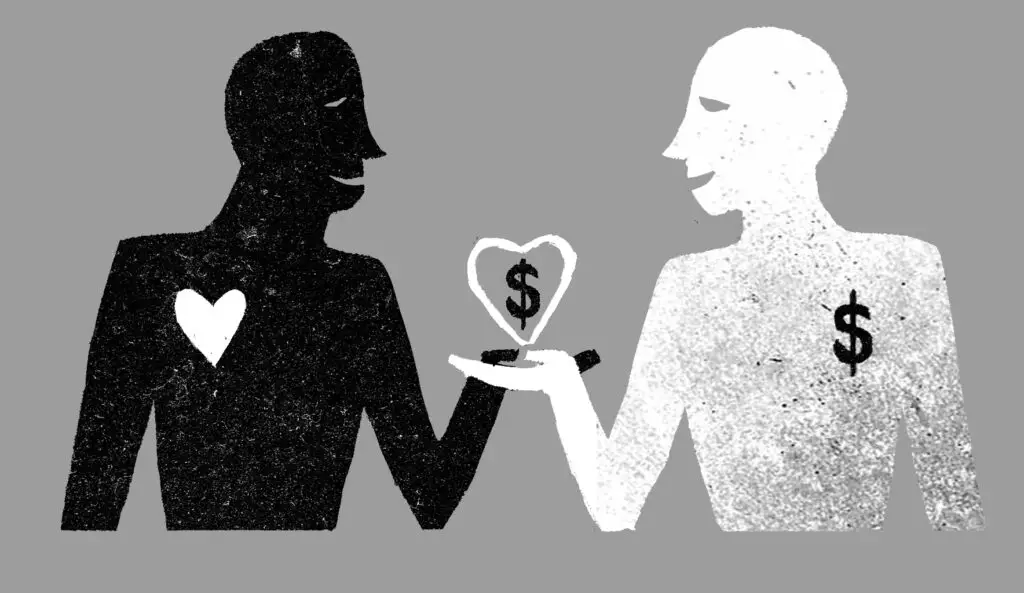In a recent Aeon magazine article, sociologist Polina Aronson discusses some important differences between the psychology of love and intimacy found in traditionalist Russian culture Vs. the “the modern west”. She focuses specifically on how we conceptualize (and experience) romantic love in late modern western culture VS “traditional” Russian society which, she further contends, has not changed much from its 19th century roots in this regard despite Russia’s past half-century of increasing cultural ’westernization’. She notes two kinds of current romantic relationships along these lines, which she labels “regimes of choice”, (characterized by attitudes about interpersonal-intimate relationships in modern western societies), and “regimes of fate” (characterized by traditional Russian approaches to intimate relationships).
Regimes of choice in modern secular commercial culture emphasize,
“maturity as absolute self-sufficiency. Attachment is infantilised. The desire for recognition is rendered as ‘neediness’. Intimacy must never challenge ‘personal boundaries’. While incessantly scolded to take responsibility for our own selves, we are strongly discouraged from taking any for our loved ones: after all, our interference in their lives, in the form of unsolicited advice or suggestions for change, might prevent their growth and self-discovery. Caught between too many optimisation scenarios and failure options, we are faced with ….self-absorption without self-sacrifice.”
In contrast, “regimes of fate” in conservative, religious, tradition-bound Russia, treat “love as if it were a supernatural power, even when it was detrimental to comfort, sanity or life itself”—a stark difference from the calculated rational self-interested nature of contemporary western intimacy. Love in the traditionalist Russian regime of fate is all that the romantic literary legacy of Petrarch and Lord Byron have portrayed it as being: an ethereal, emotional, star-crossed, self-transcendent, mysterious encounter with destiny. In contradistinction, love in modern regimes of choice has become the subject-matter of self-help guidebooks: another routinized, rational, personal improvement project.
One lens through which to view this difference (as social psychologist Kenneth Gergen famously explained in his landmark The Saturated Self) involves historically situated conceptions of self-identity: regimes of choice being predicated on the westernized 21st century postmodern, post-industrial, isolated, rational-choice-optimizing “individual”, and regimes of fate predicated on the old Russian 19th century socially situated, romantic-era passionate lover: the passion of Anna Karenina and Alexey Vronsky, living at the whim of their irresistible attraction. The postmodern western individual views interpersonal relationships as opportunities for maximization of cost-benefit net gains, while the romantic-era Russian person, views such relationships as aspects of unfolding grand cosmic events with an ultimate purpose of their own—a journey on which individuals are just along for the ride.
Along these same lines in The End Of History and the Last Man, Political theorist Francis Fukayama (following Nietzsche and Hegel) theorized that the triumph of postmodern liberal democratic capitalist bourgeois culture in the west may ultimately turn people into nothing but passionless, materialistic and superficial consumers, or what Nietzsche called “the last men”. Fukuyama describes this as “liberal society’s most typical product, a new type of individual who had subsequently come to be termed…the bourgeois: the human being narrowly consumed with his own immediate self- preservation and material well-being”. These “last men” Polina suggests, have turned our modern (western) experience of love into another ‘commercial transaction’ (a “regime of choice”) where calculating consumers of emotion treat romance as a constant negotiation over reciprocal desires which can be re-negotiated and/or dissolved when either party to the contract isn’t getting what they bargained for in contrast to the romantic-era holder-over (‘regime of fate”) in Russia, which views love as surrender to enchanted fate and irresistible attractions that the individual can’t control (“It’s bigger than both of us”, as love-besotted soap-opera characters often proclaim)
Thus, romance in the modern west appears to have been de-romanticized—it is now a deliberation over whether to swipe left or right on a hook-up site, rather than an impulsive surrender to the fortunes of love…. IS the modern consumer’s “regime of choice approach” to love an indication that our comfortable lives of modern middle-class prosperity are turning us into the superficially independent and self-directed, but soulless, ‘last men’ that Nietzsche warned us about —devoid of deep virtues, passions or higher purposes in life—and ultimately incapable of authentic love and romance at all? Fukuyama’s assessment answers this question in the affirmative. Intimate relationships, he explains,
“don’t really work if they are based on liberal principles, that is, if their members regard them as they would a joint stock company, formed for their utility rather than being based on ties of duty and love. Raising children or making a marriage work requires personal sacrifices that are irrational if looked at from a cost-benefit calculus. ….when the obligations of love and family become more than what the contractor bargained for, s/he seeks to abrogate the terms of the contract.”
Current empirical evidence from social psychology and sociology seems to indicate that this is the case: studies confirm that people in western society are having fewer intimate encounters generally, marrying later in life, marrying less frequently, and only marrying when financial self-interest permits. In a fascinating New Yorker article, Zoe Heller notes how, among other possibilities, researchers are acknowledging that these trends are symptoms of “an epidemic of loneliness” afflicting western society.
“One partial explanation for this trend—versions of which have been observed across the industrialized world—is that today’s young adults are less likely to be married and more likely to be living at home with their parents than previous cohorts. In the U.S., living with parents is now the most common domestic circumstance for people between the ages of eighteen and thirty-four. Even after accounting for these less than favorable conditions, however, the suspicion remains that young people are not as delighted by sex as they once were. Speculation about why this might be so tends to reflect the hobbyhorse of the speculator. Some believe that poisons in our environment are playing havoc with hormones. Others blame high rates of depression and the drugs used to treat it.”
Still others contend that people are either sublimating their sexual desires in video games or exhausting them with pornography. (The dubious term “sexual anorexia” has been coined to describe the jadedness and dysfunction that afflict particularly avid male consumers of Internet porn.) For the British economist Noreena Hertz, the decline in sex is best understood as both a symptom and a cause of a much wider “loneliness epidemic.” …She cites many factors that have contributed to this dystopian moment—among them, smartphones, the gig economy, the contactless economy, the growth of cities, the rise in single-person households, the advent of the open-plan office, the replacement of mom-and-pop stores with anonymous hyper-chains, and “hostile” civic architecture—but she believes that the deepest roots of our current crisis lie in the neoliberal revolution of the nineteen-eighties and the ruthless free-market principles championed by Margaret Thatcher, Ronald Reagan, etc.. In giving license to greed and selfishness, she writes, neoliberalism fundamentally reshaped not just economic relationships “but also our relationships with each other.”
Insofar as this is what’s actually going on, it would account for Polina’s, Gergen’s, and Fukuyama’s observations. The triumph of individual autonomy as the foundational principle upon which modern life is predicated– expressed socially, economically, and politically in our secular, commercial, neo-liberal way of life, and psychologically in romantic relationships conducted via regimes of choice — may have exempted us from all the ancient and unwieldly emotional and spiritual costs of old-fashioned regimes of fate, but it appears to be doing so at the expense of what we used to think of as true romance itself, with which the calculating self-interest of regimes of choice are incompatible. Love and romance as celebrated by the classical poets has yielded to cost-benefit calculations of contemporary life.
We hope you enjoy our articles. Please note, we may collect a share of sales or other compensation from the links on this page. Thank you if you use our links, we really appreciate it!



